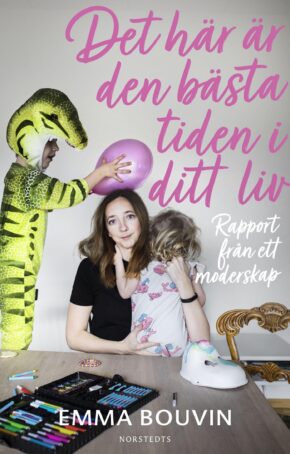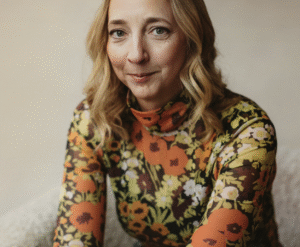
Motherhood – some of us long for it all our lives, some of us don’t want it and some of us never get to experience it. For those entering this stage of life, was it like we expected and hoped for? Or a hundred times better and worse at the same time?
Emma used to worry that she would stay single forever and never have children. Fast-forward to present time; she now dreams back to the days when no one would sit in her lap during dinner, and she would have the energy to watch a TV series without falling asleep on the sofa.
In her poignant memoir, Emma Bouvin takes us on an intimate journey from meeting her husband to getting pregnant and giving birth to two wonderful children. It is not only a story of joy and happiness, but it is also one about insomnia, the daily struggles of a parent and feeling lonely in this new life – and the horrifying reality of when your child is about to die.
With a heartfelt blend of warmth and a big dose of honesty and humor, Bouvin depicts the life-changing moments in her life and shares her deepest thoughts and concerns about being a mother today. Through the skillful eyes of a journalist, Bouvin details the many complex aspects of being a parent with all its ups and downs. The author’s strength lies in her ability to portray all the expectations one has of motherhood and how they are diminished. In her sincerity, the reader can find solace and a feeling of mutual understanding.
Reviews
“What really completes the book is the chilling depiction of when [Emma] is about to lose her child. An outstanding medical effort saves the little one, and no parent can reasonably read this without having to hold on tight to something. […] Emma Bouvin is most successful in her role as a reporter, with her own life as the object of study, in the portrayal of the dynamics between her and her partner. Her sentences flow with ease, the prose is well balanced and has a fine undertone. It warms my heart to follow these two: here, the helpless dependency that comes with deep love is allowed to coexist with an independence that gives such a relationship a chance to live for a long time. This is something that she never says outright, but it still seems to be the most emotionally developed argument in the whole text. Normally, we only find this, if we are lucky, in writers many decades older.”
– Dagens Nyheter (SE)
